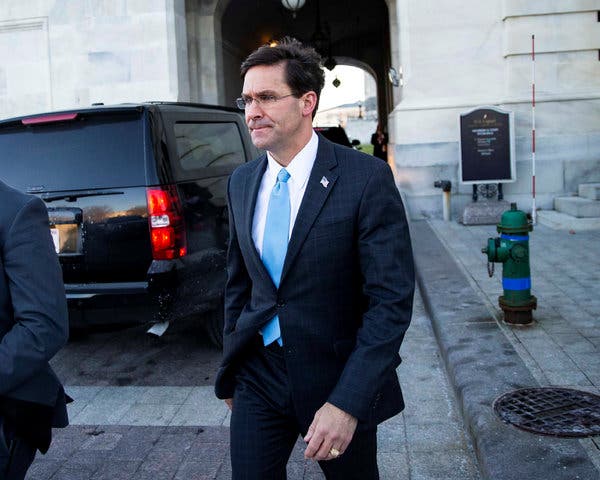Advertisement
On Politics
The findings of Florida’s 18-month inquiry into allegations of ballot fraud in 2018 received little attention when they were released this year. But they proved the president wrong.
Hi. Welcome to On Politics, your guide to the day in national politics. I’m Pati Mazzei, filling in for Lisa Lerer.

Florida has seen the play before.
President Trump, without proof, complains repeatedly about ballot fraud in communities rich with Democratic voters, questioning the legitimacy of the election.
That is a reference not to Tuesday night’s debate but to 2018, when Mr. Trump claimed in the middle of a recount that the midterm election results in Florida had been tainted.
“An honest vote count is no longer possible — ballots massively infected,” Mr. Trump falsely asserted on Twitter on Nov. 12, 2018, adding that ballots had “showed up out of nowhere, and many ballots are missing or forged.”
“Don’t worry, Florida — I am sending much better lawyers to expose the FRAUD!” he wrote on Nov. 8.
That same day, Gov. Rick Scott, the Republican nominee for Senate who was awaiting a recount in his race, had accused two of the state’s largest counties, Broward and Palm Beach, of “rampant fraud” and asked officials in the Florida Department of Law Enforcement to investigate.
Investigate they did. And earlier this year, at the end of their nearly 18-month inquiry, the investigators found no evidence of widespread fraud.
No, there was nothing sinister about vote totals being updated slowly overnight. No, Republicans were not illegally barred from observing the recount. No, Democrats did not act unlawfully when they tried to help voters fix problems on their mailed-in ballots.
The only evidence of wrongdoing that investigators pointed to was that an elections supervisor in Bay County, in a heavily Republican part of the Florida Panhandle that had been ravaged by Hurricane Michael, counted 12 votes sent in via email, a possible violation of state law. Prosecutors determined there was not enough evidence to bring a case.
The findings, released in May, drew relatively little attention amid the coronavirus pandemic. But they dismantled the false fraud claims made in 2018 by Mr. Trump and Mr. Scott, who won the race and is now Florida’s junior senator.
It is worth revisiting that investigation in light of the baseless fraud claims that Mr. Trump made on Tuesday in the debate against Joe Biden. If one of the lessons of Florida’s infamous presidential recount in 2000 was to avoid confusing ballots with hanging chads, perhaps a lesson of Florida’s 2018 recount is to be wary of bombastic, unproven claims of shenanigans.
Fraud has become “a standard Republican talking point,” former Senator Bill Nelson, who lost to Mr. Scott two years ago, told me today. “It’s not surprising that Trump would say the same thing now, anticipating that the mailed-in ballots are going to be heavily Democratic.”
After the 2000 recount, state officials tried to make it easier to vote, Mr. Nelson noted. “And then that trend reversed,” he lamented.
Now he and others fear that crying fraud could scare voters away from the polls.
“I’m so frustrated by these claims that really are clearly designed to destroy the credibility of our election system,” said Ion V. Sancho, who worked as the elections supervisor in Leon County — home to Tallahassee, the state capital — for nearly 30 years. “There are plenty of problems within the elections process itself without raising false claims of vote rigging. We just have to stop playing partisan politics with our election system.”
Maybe next cycle.
Thanks for reading. On Politics is your guide to the political news cycle, delivering clarity from the chaos.
On Politics is also available as a newsletter. Sign up here to get it delivered to your inbox.
Is there anything you think we’re missing? Anything you want to see more of? We’d love to hear from you. Email us at onpolitics@nytimes.com.
-
The Latest
Prominent Republicans expressed unease about President Trump’s failure to disavow an extremist group amid fears that it could damage the party on Election Day.
-
How to Vote
Many rules have changed during the pandemic, making it harder to figure out how to cast your ballot. This interactive guide can help you ensure your vote is counted.
-
Paths to 270
Joe Biden and Donald Trump need 270 electoral votes to reach the White House. Try building your own coalition of battleground states to see potential outcomes.


